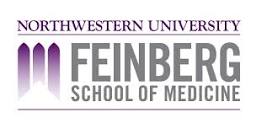Study of the Glutaminase Inhibitor CB-839 in Leukemia
| Status: | Recruiting |
|---|---|
| Conditions: | Blood Cancer, Blood Cancer, Hematology |
| Therapuetic Areas: | Hematology, Oncology |
| Healthy: | No |
| Age Range: | 18 - Any |
| Updated: | 4/21/2016 |
| Start Date: | February 2014 |
| End Date: | December 2016 |
| Contact: | Tina Woo |
| Email: | twoo@calithera.com |
| Phone: | 650-870-1028 |
A Phase 1 Study of the Safety, Pharmacokinetics, and Pharmacodynamics of Escalating Oral Doses of the Glutaminase Inhibitor CB-839 in Patients With Relapsed and/or Treatment-Refractory Leukemia
Many tumor cells, in contrast to normal cells, have been shown to require the amino acid
glutamine to produce energy for growth and survival. To exploit the dependence of tumors on
glutamine, CB-839, a potent and selective inhibitor of the first enzyme in glutamine
utilization, glutaminase, will be tested in this Phase 1 study in patients with leukemia.
This study is an open-label Phase 1 evaluation of CB-839 in subjects with leukemia. Part 1
is a dose escalation study to identify the recommended Phase 2 dose as a single agent and in
combination with azacitidine. Patients enrolled into Part 2 will be treated with the
recommended Phase 2 dose. As an extension of Part 2, patients with relapsed/ refractory or
newly diagnosed AML will be treated with CB-839 in combination with azacitidine.
All patients will be assessed for safety, pharmacokinetics (plasma concentration of drug),
pharmacodynamics (inhibition of glutaminase), biomarkers (biochemical markers that may
predict responsiveness in later studies), and tumor response.
glutamine to produce energy for growth and survival. To exploit the dependence of tumors on
glutamine, CB-839, a potent and selective inhibitor of the first enzyme in glutamine
utilization, glutaminase, will be tested in this Phase 1 study in patients with leukemia.
This study is an open-label Phase 1 evaluation of CB-839 in subjects with leukemia. Part 1
is a dose escalation study to identify the recommended Phase 2 dose as a single agent and in
combination with azacitidine. Patients enrolled into Part 2 will be treated with the
recommended Phase 2 dose. As an extension of Part 2, patients with relapsed/ refractory or
newly diagnosed AML will be treated with CB-839 in combination with azacitidine.
All patients will be assessed for safety, pharmacokinetics (plasma concentration of drug),
pharmacodynamics (inhibition of glutaminase), biomarkers (biochemical markers that may
predict responsiveness in later studies), and tumor response.
Inclusion Criteria
- Diagnosis of AML or ALL, relapsed or refractory after at least 1 prior treatment
regimen. Newly-diagnosed patients ≥ 60 years old who have refused or are considered
unfit for standard chemotherapy regimens or stem cell transplantation are also
eligible.
- Patients must have no available approved therapies that confer clinical benefit
- All patients must have bone marrow involvement of their tumor, with documented blast
percentage of > 5%.
- Peripheral blood blast count must be ≤ 30,000 cells/µL.
- Eastern Cooperative Oncology Group (ECOG) Performance Status of 0-2
- Adequate hepatic, renal, and cardiac function
Exclusion Criteria
- Any other current malignancy
- Patients with acute promyelocytic leukemia (APL)
- Treatment with an unapproved, investigational agent within 21 days of the first dose
of study drug
- Allogeneic hematopoietic stem cell transplant or Donor Lymphocyte Infusion within 90
days prior to to the first dose of study drug
- Active GVHD
- Unable to receive medications by mouth
- Major surgery within 28 days before Cycle 1 Day 1
- Uncontrolled, active infection; patients who are known to have HIV infection/
seropositivity, Hepatitis A, B, or C, or CMV reactivation
- Significant neurotoxicity/neuropathy (Grade 3 or higher) within 14 days prior to Day
1
- Refractory nausea and vomiting or other situation that may preclude adequate
absorption
- Conditions that could interfere with treatment and procedures
We found this trial at
5
sites
666 Elm Street
Buffalo, New York 14263
Buffalo, New York 14263
(716) 845-2300

Principal Investigator: Eunice Wang, MD
Roswell Park Cancer Institute Welcome to Roswell Park Cancer Institute (RPCI), America's first cancer center...
Click here to add this to my saved trials
303 E Chicago Ave
Chicago, Illinois 60611
Chicago, Illinois 60611
(312) 503-8194

Principal Investigator: Olga Frankfurt, MD
Northwestern University Feinberg School of Medicine Northwestern University Feinberg School of Medicine, founded in 1859,...
Click here to add this to my saved trials
1721 East 19th Ave., Suite #200 & #300
Denver, Colorado 80218
Denver, Colorado 80218
720-754-4800

Principal Investigator: Michael B Maris, MD
Phone: 720-754-4890
Colorado Blood Cancer Institute When patients come to the Colorado Blood Cancer Institute, the entire...
Click here to add this to my saved trials
1515 Holcombe Blvd
Houston, Texas 77030
Houston, Texas 77030
713-792-2121

Principal Investigator: Marina Y Konopleva, MD PhD
University of Texas M.D. Anderson Cancer Center The mission of The University of Texas MD...
Click here to add this to my saved trials
250 25th Ave N, Ste 100
Nashville, Tennessee 37023
Nashville, Tennessee 37023
615-320-5090

Principal Investigator: Ian W Flinn, MD
Tennessee Oncology, PLLC Since 1976 Tennessee Oncology has been providing quality cancer care. In 2013,...
Click here to add this to my saved trials